When news of all the changes at IDW broke, I reached out to the company for comment. Over the next few days, IDW offered the chance to talk to the new CEO, Davidi Jonas (pronounced dah-VEE-dee). I approached this as a chance to get to know him and to find out his background, what he brings to IDW, and some of the ways that the reorganized IDW will be approaching their core businesses.
Jonas has a diverse background – among other things he’s a Rabbi who practiced in a synagogue for six years, and for two years he taught Judaic Studies in a high school. Given this, it was no surprise that the conversation was free-flowing and candid – and humorously self-deprecating. I have trimmed his answers a bit – as he told me, “I drive lawyers nuts, because I can’t answer a yes or no question with a yes or no answer.”
This is very much an introductory conversation. IDW faces tough challenges but the remaining staff includes some of the best minds in the industry. Everyone wants to work together to find success in this new world.
This interview has been edited for clarity and length.
Heidi MacDonald: Can you just tell us a little bit about your background and how you came to be the CEO of IDW? And maybe a little bit about how you’re approaching this?
Davidi Jonas: I guess I’ll take a little bit of a step back – it’s my origin story. I trained to be a rabbi, and actually practiced as a rabbi in a synagogue for six years, and taught Judaic Studies in high school for two years. Then I just got bored, because there was too much free time as a teacher. I started at a company called IDT, which at some point was a parent company for IDW and CTM. My father’s the founder and chairman of IDT [Howard Jonas]. so I certainly came in with a leg up. But it would also be the most embarrassing if I failed, because everyone was watching. I knew the only way that I had a chance is if I worked really, really hard, and tried to get guidance. Plus, I like people, so I become friendly with everyone who I work with. So slowly, they gave me these two divisions that were the least-loved children in the parent company. [Clarifying: these companies are not related to IDW; one would eventually become the telecom Straight Path.] They had both lost a lot of money over the previous five or six years, and were either mismanaged or not being managed. One was intellectual property enforcement, as basically a patent troll, which is ethically dubious, but intellectually stimulating. I had to master how patents are written, how they’re enforced, how they’re prosecuted, different litigation, leverage strategies. The other business was a wireless spectrum business.
So I was running these two divisions, and had to learn both businesses, and didn’t know anything about IP, didn’t know anything about wireless connectivity and wireless transmission. And slowly, I learned the businesses, learned the technology, learned the ins and outs of the different regulatory regimes for both of those businesses, and then actually had to run the business and try to create value for our shareholders. At the time, I was 26, I already felt out of place in the professional environment, like I used to bring food with me into meetings so that it would make people think I was more comfortable than I actually was. Like, oh, if he’s eating sushi at 11 in the morning, during a finance meeting, he must really feel comfortable. But, I was just terrified and trying to fit in.
So they said, yeah, you’ll be the CEO, which I thought was crazy. I actually pushed back, but they said, no, you’re doing such a good job. There’s a whole saga there, which we won’t get into, because it’s too long and intense. But that company had a four-year lifespan. When we went public, the company [Straight Path] was worth $25-$30 million. Four years later, we sold the company to Verizon in a bidding war between AT&T and Verizon. I’ve been told it was the highest premium that one public company ever paid for another public company. So yeah, it was a great outcome. After that, I decided to relax, spend more time with my family, which is my highest priority and value.
And then one day in 2019, my dad called me up and said, ‘Look, I need help with IDW.’ Ted Adams, who had run the company, was phasing out and there was a transition in corporate leadership. My dad said, ‘If you could come in and just help us figure out how to do it, that would be really great.’ I came in and got involved but it just wasn’t the right fit at the time. I think I was not ready to go back into a real CEO-type position. They called me, I think, the chief strategy officer, but [I realized I should] take a break from being an officer.
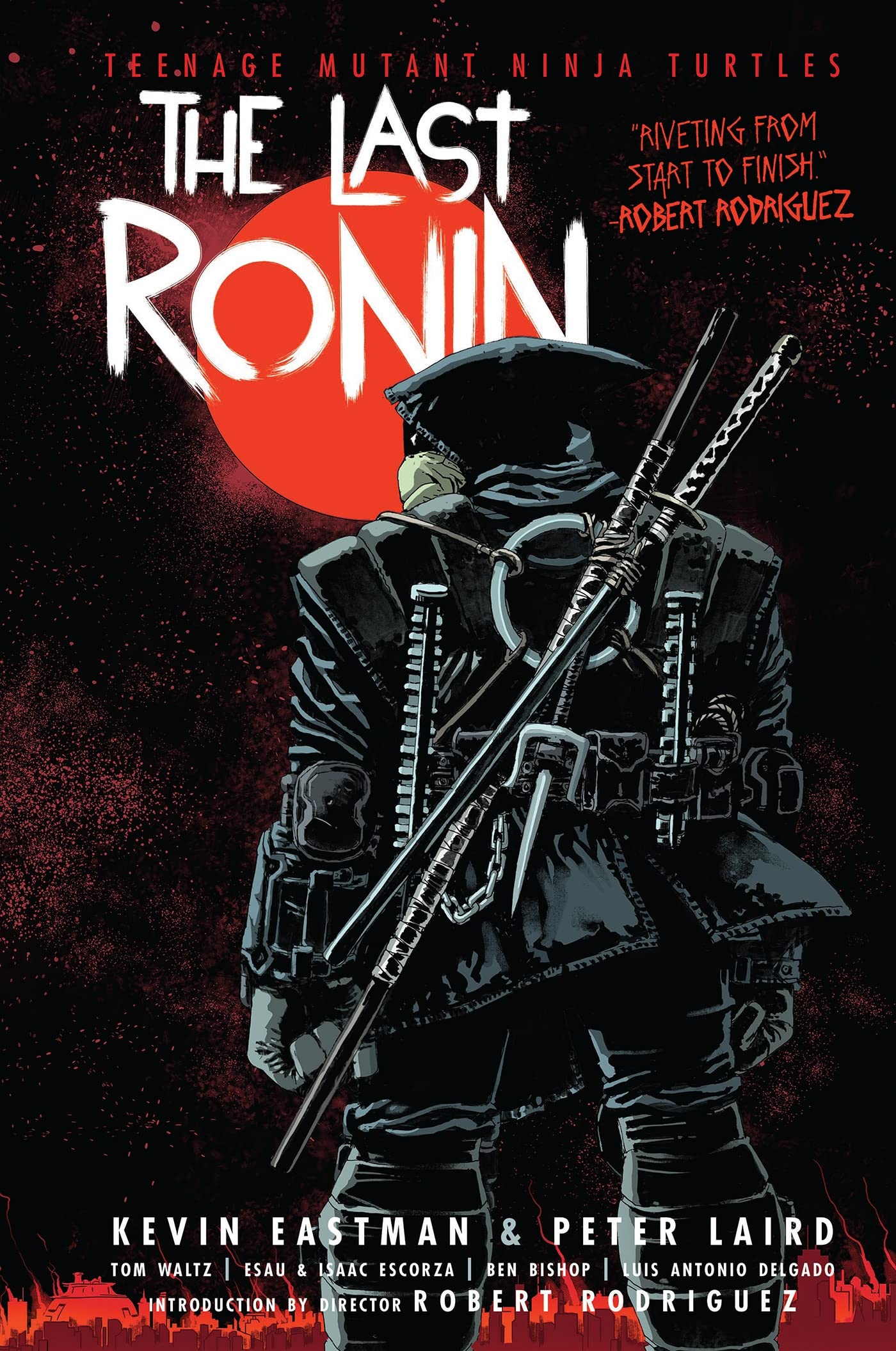
MacDonald: Sometimes that position can be a lot of fun.
Jonas: It could have been a lot of fun. It just wasn’t the right fit for me at that time. And there were a few reasons. One was, I thought the company was overvalued at the time. And so I didn’t want to have equity in the company because I thought in order for me to ever make value off of owning a stake in the company, I’d just be chasing my tail. Geographically it was really hard. This was before COVID and before people figured out how to do remote work. Thank God at the time, we had four young kids, now thank God, we have five and it just felt like it was too much to be traveling back and forth.
And the third was I didn’t exactly click at the time with some of the leadership and that was hard for me. It’s a hard work environment if there’s not that alignment. For all those reasons, almost from go, I was kind of disengaged. I stayed on for a full year but I didn’t really take a salary. I just felt that I wasn’t giving it my all. There were moments where there were sparks, and I love the people and I love the creative team and how we’re telling stories and building community.
Then there were a lot of changes in executive leadership and divisional leadership. I thought, this is not what I want to do. I left after a year and opened my own family office, working for my wife and kids, investing money on behalf of my family. I got involved in all kinds of fun, investment opportunities, and had success with crypto, small cap market investing, did some advisory work, a whole bunch of stuff that had nothing to do with comics.
MacDonald: So you were making money, which isn’t a big thing in the comics industry, I’ll tell you that right now. [Laughter]
Jonas: I did make a joke along those lines at a board meeting, but we can leave it for another time. I am highly confident we’re going to change that.
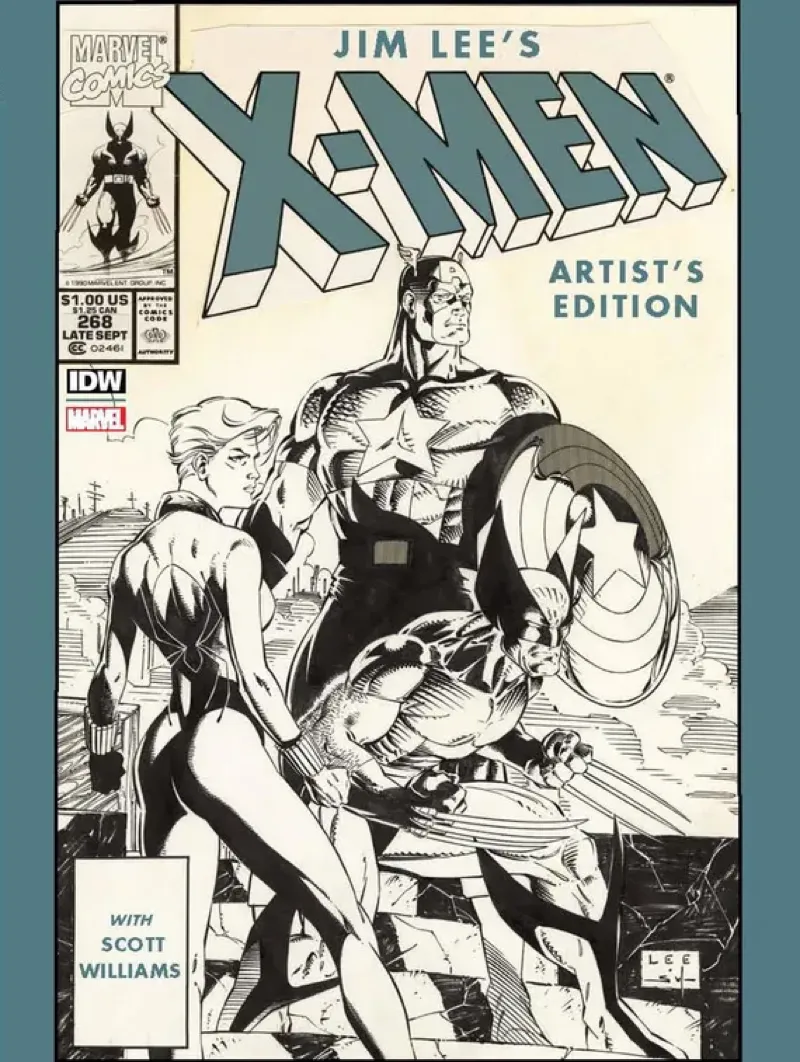
MacDonald: So just to bring it back to IDW, you had the first run that wasn’t a good fit. And obviously, there were a lot of comings and goings. I cover the business side of comics, so I had several stories that were titled IDW has new CEO, or IDW has new publisher, there were four or five of those. But to come back to the current situation…
Jonas: When I was in the company in 2019, my father had offered me equity. I had made an offhand remark, along the lines of “The stock is worth maybe $1.” And the stock at the time was worth $30 to $35. Everyone who was in the room thought, ‘Davidi’s crazy, he’s unhinged.’ But I kept track of the IDW stock just for fun. And one day the stock hits $1. I was like, well, there is this concept in Judaism, that what comes out of your mouth, you have to live up to it. I kind of felt I needed to eat my words. I called my dad and said, ‘What do you think about me getting involved with IDW at the board level?’ And he said, ‘That would be wonderful, we’re actually changing the board.’ I said, ‘If I’m coming in, I want to do it right, by the book and with people that I feel like I can rely on. I want to choose the board to be people that I think would stand up to scrutiny and put in the time and the hard work.’ The board has been phenomenal. When I came in, I thought I’m just going to be a board member and I don’t know if you’ve ever been a board member. It’s kind of a cushy job. I mean, if you would call it a job, you come in for a few hours.
MacDonald: Well, I’ve only been a board member on non-profits, which isn’t as cushy. But I understand what you’re saying.
Jonas: Hopefully you’ll have the option to be a board member someday! But I thought, it’s not really going to be a lot of work, the stock is going to turn around. It’s at $1. How much worse could it get. But as I got in, I realized that it was more challenging than I had expected. They had a new CEO, things were going to turn around. But the further I got into it, the further I realized that, that there were endemic problems to the company, that there were systemic issues. And that in order for the company to succeed, both on the financial side of things and the operational side of things, there needed to be meaningful changes.
On the financial side of things it’s not an easy decision to make, because we’re talking about people’s livelihoods and people who I got to know and like and feel a personal connection to. It’s not a pleasant thing to have to do, but it was a necessary thing to do, because the company was quickly running towards insolvency. So on the financial side, it was numbers on paper and trying to figure out what was the right amount of money that the company should be able to save.
On the operational side it was a much different calculation. It wasn’t just taking the leftovers. I went to the drawing board, I spoke to a bunch of people who I trust in editorial, and said, okay, look, if I was going to build a business from scratch, if I was going to go into comics right now and build an organization from the ground up, what are the functions and the talents that I’d want inside that org and what’s the culture I’d want to build inside that org?
So that was the way we built the company and decided who was going to be staying on and who we were going to bring on after we made these hard choices. Bringing on someone like Josh [Frankel] was a critical choice, because I think going into the 21st century, the comic industry has not always been at the forefront of innovation. It’s innovative creatively and in storytelling, but in terms of engaging fans, using social media, TikTok, short form video, podcasting [it’s not].
In terms of the operations of the business, the way that IDW had been structured, which I think also goes back to 2019, it was sort of a siloed business. There was the creative team, the operations team, that deals with printing and shipping. And then there’s the marketing team and the sales team. And the creative team would kind of create their product, lob it over the fence, to the marketing and sales team, and hopefully they’d run with it. But there was a disconnect between the creators and the partners that they represent, and the actual sales and marketing process. And for me, I just felt that it [didn’t] make any sense. The people who care the most about this product are the ones who are the least involved with the selling and storytelling to buyers of that product. We need to have an integrated organization where the sales team, the digital team, the marketing team, the creative team, the operations team, everybody talks and works together and works in a franchise model instead of a siloed model. So anyone who works on Star Trek or Sonic or Turtles, all those people are now talking, I’m seeing those conversations happening. It’s triggering a new level of excitement and innovative conversation.
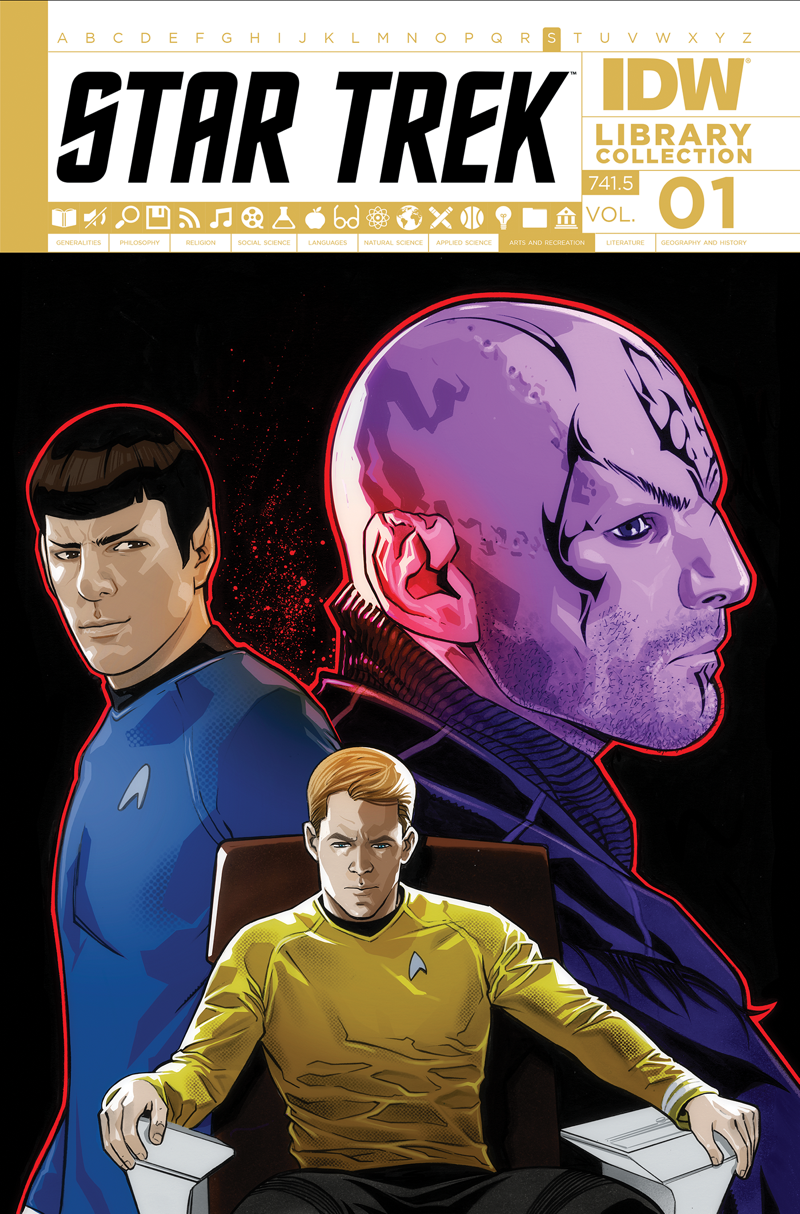
MacDonald: So when you talk about the silos my understanding is that IDW has two divisions, IDW Publishing and then IDW Entertainment. I haven’t seen much talk about IDW Entertainment in the materials that I’ve received about the reorganization. So can you talk a little about IDW Entertainment going forward? Or how does it fit into the new structure?
Jonas: I’ve tried to be careful in the way we articulated it. So if you look at my quote from the press release this morning, it actually does specifically call out storytelling and entertainment. And the reason is because we’re not we’re not mothballing Entertainment. We believe that it’s another modality for the storytelling that we do. It creates value for our creative partners. It’s also a virtuous cycle. If we find something that’s a creative project on the entertainment side, and we can put out a comic book, get the fan base engaged, create excitement around it, then that entertainment franchise now has a bigger following to be able to have the confidence to go to market. Or if we do it the other way, where we first have the comic and then we say look, we have a fan base, we have this excitement. And now we’re going to take that fan base and transition it over to Entertainment. Look at the IDW Originals, which are really just starting in terms of rolling out new original products like Earthdivers, Dark Spaces, Crashing, all great books.
MacDonald: You have Jamie [S. Rich], Mark [Doyle], Scott [Dunbier], you have great, great editors, you have Chris and Leigh at Top Shelf.
Jonas: I feel like I am walking through Monument Park in Yankee Stadium. These people are masters at what they do, and the stories that they tell are so compelling, they should be in other media to engage the fans. If we said we’re just doing publishing, it would be criminal. You also have the fans, who genuinely love the products that they engage with, they love the stories, they love the creators. If you love a TV show and it goes for two seasons and it stops, you just have that feeling of loss. If we don’t take our things to a broader market, it’s shutting things off too early. We want to keep that engagement going.
MacDonald: As far as the content and publishing plans, I’m sure it’s still being worked on, but do you foresee IDW continuing to focus on licensing? I mean, you have had the Originals line which has had a lot of critical success. How do you see that content mix going forward?
Jonas: It’s a good question, and it’s probably open to dynamic reinterpretation over time. I couldn’t tell you today what the company should look like in three years. If I did, I’d be prophetic, and know what popular popular culture trends are going to be, which I don’t. Even our editors who are much more tapped in – nobody knows what’s going to be hot. So I don’t see us moving away from licensed. And I don’t see us moving away from originals. I see us doubling down on what we’re doing. I’ve been saying this over and over, just to remind myself we are not in a bad business, we’re in a great business, we just need to figure out the connection and the distribution. We have fans that love what we do, and if the margins aren’t high enough, that doesn’t mean it’s a bad business. That means we need to figure out the margins and how to connect with our fans in a meaningful way. The great thing is the fans actually want it to happen. We’re not like some henchmen plotting a plan [to fool] consumers, this is actually what the fans want. They would love to have more TV shows around the books they love, they’d love to have conferences, and podcasts and engagement with the artists and the writers. These are all things that we can do.
MacDonald: A couple of other specific questions. Another thing that hasn’t been mentioned a lot is Top Shelf which functions as a separate imprint. Will it continue on?
Jonas: Again, I’d say we’re doubling down. Top Shelf is great. The first books that I picked up when I got back to IDW are a bunch of Top Shelf books. I’m a long-form prose reader. I read things that would bore most people half to death, long, long history books and philosophy and psychology. I thought, I don’t know if graphic novels are for me.
Then I started reading some and I was like, wow, this is a really compelling modality of storytelling. And the artwork was incredible. The storytelling was funny and witty and human. I connected with it in a really deep and meaningful way. I have to give a special credit to Top Shelf because it really drew me into the love for graphic storytelling. I’d say not only is Top Shelf going to continue, I think that Chris Staros and Leigh Walton, who run it as a team, are going to take on a more prominent role within IDW. It’s that integration that I was talking about where everybody works together. If you put them together and let them talk and figure out strategy and story and then put them together with entertainment, bring in the games division, and then you bring in people who are doing events and all of a sudden you have all these brilliant minds getting together. I think magic happens there. That’s the place where I think this company is going to thrive.
MacDonald: At The Beat we worked with a lot of the folks in the marketing department, and a lot of those folks, if not all, have been let go. You’re kind of rebuilding your sales and marketing force from the ground up. Talking about innovation, does that mean that you’re going to have a new approach?
Jonas: It’s a great question. When we looked at the business, we didn’t say, well, we don’t need sales and marketing, so we’ll just cut that. That would be absurd. First of all, we’re bringing on new talent. It’s got to be the right culture fit. We want to be an entrepreneurial business. Someone who’s coming into IDW with a new energy, when someone comes in to do sales and marketing, they’re now actually part of the creative process. You have to start thinking in a different kind of mindset, and it’s hard to do that when the team is already there, and has been following certain business practices, which is understandable. That’s the way the industry standard is to run. I don’t think we’ve announced it yet, but we are bringing on new people for direct sales as well as marketing.
Bringing on Josh was a critical decision, one of the most important decisions that we made, because it really kind of planted our flag in terms of what we think is the future of marketing and engagement with our fans. I’ve looked at budgets from years past of where sales and marketing dollars are spent. And frankly, I think most of our fans are engaging online. I think they’re engaging on TikTok, and Facebook and Instagram and Reddit chats. Not as many people are picking up periodicals and print. But that’s where a lot of advertising spend was happening. Bringing on Josh, who has done it in the past, he has an incredible excitement about the franchises that we work with. We’re going to have a revamped website, it’s going to be much more user friendly, better ecommerce, more offerings, more dynamic ways for fans to engage. It’s really finding the fans where they are and not where they were maybe 35 years ago. That’s where we’re doubling down on our sales and marketing. And I think it’s going to pay off in a huge way.

MacDonald: Well, as soon as that announcement went out this morning, everyone was talking about it. I talked to Josh a lot when he was founding Z2, and he definitely came up with a lot of ideas that other companies haven’t tried.
Jonas: I can’t take credit for it. In a way it was somebody else’s idea. I didn’t know Josh. One of the advisors who worked for the board, who’s continuing on with the company said we met a bunch of people over the last few years, you should talk to this guy, Josh. He’s really smart about this stuff. And so Josh came to meet with me at my office. And frankly, I thought Josh was actually pitching me to invest in his business he was working on. But as the conversation went on, I was like, I really liked this guy. When you start talking substantively with Josh about how it works, and the type of analysis that he does, whether it’s facial recognition, or using algorithms to find fans or going into Reddit groups. He’s a sleuth. Like I said, it’s not henchmen planning a plan.
The way I described it to our company, I feel like we’re in this tragic love story, where we want to find our lover, which are the fans, and they want to find us. But we have this message in a bottle that we call comics, and we publish it, and we send it out into the ocean. And we put it into the hands of brilliant partners like PRH and Diamond, and hope that our fans will find us and they do, and they read the letter and they go, Wow, I love this so much. But I don’t have a relationship with the person who wrote it, I don’t connect back to them. We can actually build a bridge to connect with our fans. And Josh is the one who’s taking that message in a bottle and turning it into a direct connection for us to our fans.
MacDonald: I definitely appreciate you stepping up and answering questions and talking to the press, and I appreciate your candor. But to clear up one thing, IDT is a big company that’s very successful. Is IDT the principal shareholder of IDW? How are they connected?
Jonas: IDT itself doesn’t have an ownership stake in IDW. At the time that IDW separated from IDT, it was an exact carbon copy of the shareholders, but over time, it changed meaningfully. So the shareholders of IDT, for all I know, don’t own any stake in IDW. The only one I do know is my family’s stake. They continue to be invested in IDW.
MacDonald: Okay, that’s an important clarification. Because I think people do have a lot of questions about how the two companies are related. And I think what you’re saying is Howard Jonas and the family are related to both. But IDW is not owned by IDT.
Jonas: Outside of renting maybe four cubicles in the IDT office in Newark where a few people worked – which I don’t think is going to continue – there really was no formal relationship between IDW and IDT. If there’s some way that IDW can generate value from working with IDT on something like payment processing, which IDT has an expertise in, I’d say great. If there’s some way that we could work with a company like Zedge, a company that my family is also affiliated with that does banners, stickers and, ringtones, I can see there being some crossover, but it would be the same as if I was looking at any other company. There’s no formal relationship other than – I don’t know what my father’s ownership stake in IDT is, versus IDW. But I assume he has a meaningful ownership stake in both.
MacDonald: That’s interesting to know, because I know a lot of people have so many questions about how they were related.
Jonas: You mean people don’t actually read form filings and try to track the F-13s? [laughter] People are normal, and they don’t want to read financial statements! For the average person, it’s hard to track it. But I can tell you this in terms of the practical day to day engagement, my father is on the board. But in terms of direct management, day to day operations, I’m all in, and I’m really the representative of the company. I’m the representative of the board. So in terms of day to day operations, I wouldn’t say my father has nothing to do with it. But he’s a board member, going back to what I thought a traditional board member would do, being a little bit less engaged in the business. In terms of engagement in the business, I’m the guy who jumped all in.
MacDonald: I think, again, for comics folks, understanding that IDW is the only publicly-held comics publisher, it’s a little bit different. It’s not run by one person, it’s run by a board and shareholders and stakeholders. Okay, one really last quick question I have to ask: Have you been to Comic-Con? And are you going this year?
Jonas: Okay, so I have not been to Comic-Con yet! I am planning to go this year. One of my favorite things that happened in our first company meeting was we opened it up for question and answer with the whole company. And Heather Antos, who’s an incredible [group] editor for Star Trek and Sonic [To clarify, Antos is the group editor of the licensed group; David Mariotte is the editor on the Sonic title and Riley Farmer is assistant editor], actually asked me, ‘What’s your favorite comic that we publish or that you read and you love?’ And I thought it was such a good question, because it really penetrated the reality that I’m not from the industry. And you could totally call BS, not that I was trying to hide it. But I thought it was a really poignant question. So this morning on our group call I showed Heather that I’m in the middle of reading Star Trek. I took her call to action seriously, although I’m [still learning.] I could tell you about the things I have read, including Ballad for Sophie, a few other titles that I read from Top Shelf. I will fight for Ballad for Sophie, I will fight for any title that we publish, because I believe we publish great stuff.
So Comic-Con. I haven’t been there yet. I hope by the end of the summer I’ll tell you it’s the coolest place in the world. One of my mentors told me that Comic-Con is the most beautiful thing that he’s ever seen for young people, because there’s all these young people that maybe are a little different from their peers, maybe they’re more engaged in a subculture. When you go to Comic-Con and you see these kids who love that and they see other kids that are doing the same thing. They find each other in that space, take pictures together, they hug it out. He said his kids just lit up seeing other kids that were into the same stuff. So I don’t know if that’s really what Comic-Con will be. I hope that’s part of it. I’m looking forward to seeing the community.
[This story has been updated to clarify the name of the editor of the Sonic title; it is David Mariotte.]


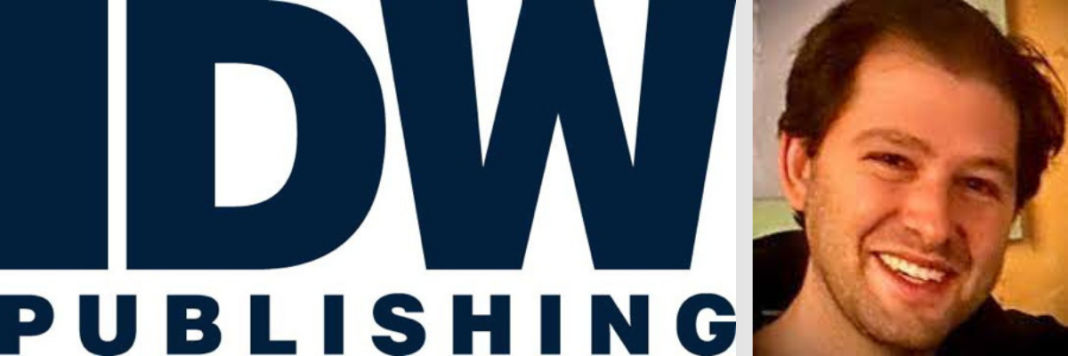

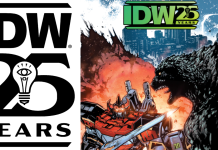

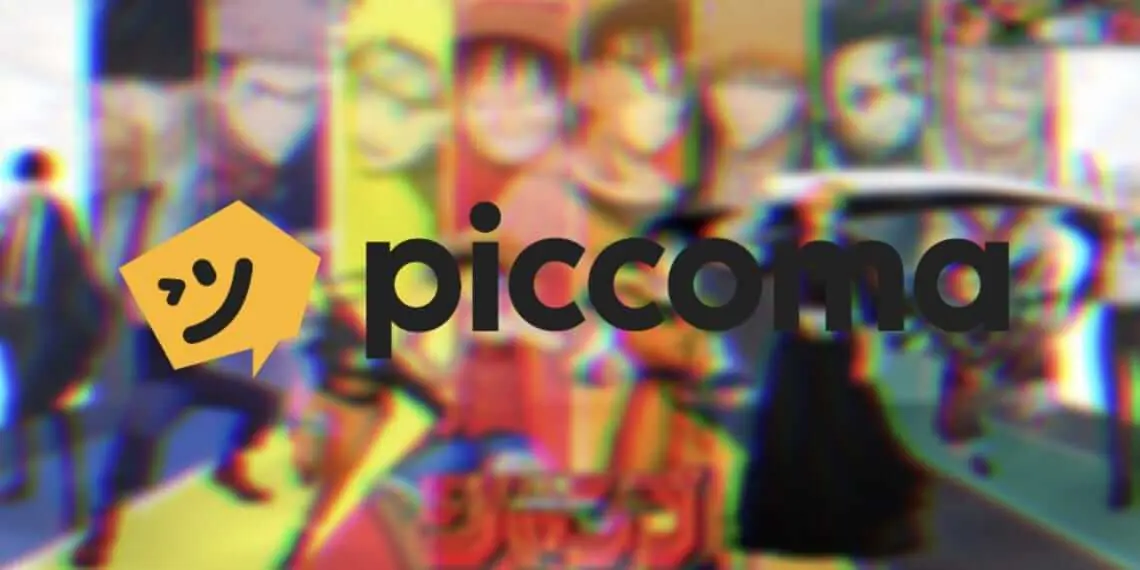

Wow, there’s a lot to unpack there!
But, seriously, if “build(ing) a bridge to connect with our fans” was either easy or something that was super-productive in terms of generating direct revenue for publishing (vs mildly broadening specific audiences for specific properties), then a whole lot of much larger companies would have been doing it for decades already. The challenge that all of this “VC Speak” is going to have to find a way to try these new initiatives without alienating their core retail market… but that retail market is where almost every dollar of their publishing revenue comes from. It’s a Gordian knot that has been attempted (and failed) by scores of CEOs over the decades, but most of the successful examples have non-replicable things at the core of that success (Ex: “Do a once-in-a-generation reboot of your company owned superhero line” or “Get Keanu Reeves to do a comic”)
In terms of broadening audiences it is really REALLY difficult to do that for original properties — as solid of a comic EARTHDIVERS might be, it’s very hard to see a book like that becoming a break-out hit. Publishing original stories is more or less a lottery after all, with the overwhelming majority of them only finding small audiences that break even at best. This is just publishing and how it works. And very few original publishing projects have a meaningful chance of having clear ways to further exploit them — the juxtaposition of “games” and “Top Shelf” in the same paragraph might be the most ideal example.
I wish him luck, but the vibe I got from this didn’t make it seem to me the tides are going to shift significantly for comics publishing at IDW… especially because basically all of the folks who understood sales and marketing within the medium all got fired.
-B
OK, I’m going to put on my super, SUPER CYNIC hat now. My big problem here is that, today, all “business men” are not about profiting by making a superior product and outselling their competition. They are about separating the public from their money in any unethical way possible. I say “unethical” because ethical business practices no longer yield the profit margin current board members demand. Today’s “business executives” don’t build anything or create anything. They’re all pimps. And comics (or in this case, the comic COMPANY) is just another 16-year-old runaway they put on the street corner to turn tricks until it winds up dead in a dumpster. Despite all the above talk, I’m certain that if it all goes south, he’ll be able to declare bankruptcy, buffered by some shell company and will never really suffer any financial consequences. A rich man’s game. I would say that “business men” today are all Randolph and Mortimer Dukes from “Trading Places.” But I don’t even give them that credit. There is no concept of ethics. All actions are justified by saying “it’s just business.” We’re being controlled by a ruling class of sociopaths. I’m not speaking specifically about you, Mr. Jonas. Just your ilk.
Sad.
Actually, the Sonic editor is David MARIOTTE. One r, two ts.
Good God.
This reads like one of those Isaac Chotiner interviews with a MAGA reprobate where you just let them talk and talk and they draw their own noose tighter and tighter.
As someone who spent their career in publishing marketing, imagine my surprise to discover that having sales and marketing professionals in your organization is a detriment to sales and marketing! Let the editors run it all!!
What idiocy. What an embarrassment.
I’m pulling for this guy to turn things around for IDW. He’s not from the industry but from the interview shows that he is very intelligent and wholly invested the company with a good supporting staff. Sometimes you need someone new with a fresh perspective to go against some of the stale “We always do things this way” mantra. I also love that the usual experts and many cynics, as well as super cynics, that permeate the industry are hoping this guy to fail. I would love to see them eat crow.
Comments are closed.